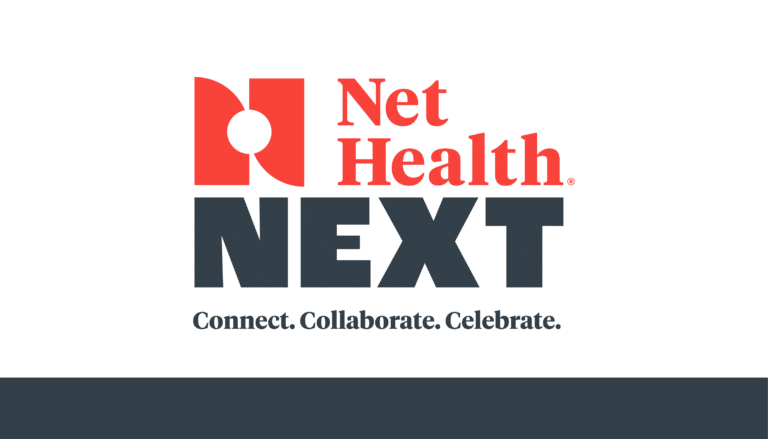February 11, 2022 | Tannus Quatre, PT, MBA
3 Minute Read
SEO vs. PPC? What’s Right for Your Rehab Therapy Business
As long as I’ve been in the digital marketing world, the constant question that I hear from business owners is this:
“What’s best? SEO or PPC?”
This is a common marketing question that doesn’t have a consistent answer. A better question to ask is, “What’s best for my business? Search Engine Optimization (SEO) or Pay Per Click (PPC)?”
In response to this common query, I’d like to go over several factors that may help a physical therapy clinician determine which service could work best for their business. No two clinics are the same, of course, yet I’ll do my best to provide recommendations for most general practices.
But first, for the sake of this article, I will refer to SEO as the practice of seeking organic search results on Google (also known as Google SERP). Alike, I will refer to PPC as paid search results on Google (also known as Google Adwords).
4 Questions Physical Therapy Clinicians May Ask Themselves Before Starting an SEO or PPC Marketing Campaign
1) What Is My Goal?
Every marketing campaign is encouraged to start with this question. This may seem rather obvious, but we ask physical therapists this all the time and it’s rare when any of them have an absolute answer. And yet, the more specific your answer is to this question, the better chance you have on achieving a successful marketing campaign. Keep in mind that when you’re focused on a specific goal, you are likely sacrificing other key performance indicators.
For example, if your goal is to generate leads, then you shouldn’t be overly focused that a competitor is the #1 search result on Google. Rather, if you are generating leads, then stay focused on achieving your goal.
Below are three typical SEO and PPC goals.
Leads. A lead is a potential prospect. This can include a web lead who contacted you through your website via phone or email. Or they looked you up online and dropped in. Typically, PPC is best for leads because you can easily calculate an ROI. Leads from SEO will take time, and the website traffic is truly organic.
Website Traffic. If you want a jump in traffic right away, then use PPC. Yet if you want to increase your traffic long term and grow continuously, then SEO is your best solution. You can easily test this by monitoring these traffic sources below:
- Organic Traffic. SEO.
- Referral Traffic. SEO.
- Paid Traffic. PPC.
First Page on Google. Everyone wants to be the in the No. 1 spot on Google. This is extremely ambitious as Google only has one No. 1 spot.
If you have a greater budget compared to your competition, then you can be in the No. 1 ad spot right now. However, your return on investment might not be optimal. On the other hand, earning the No. 1 spot on Google’s organic listings can take a lot of SEO effort and time, especially for keywords.
I strongly recommend that you test PPC with various keywords. You might find that you pay way too much for “physical therapy” and get better results at a cheaper rate for “back pain therapy.”
This tactic would also work for SEO. Instead of purely optimizing for the most competitive keyword, add various content throughout your website and optimize it for other keywords.
2) What Is My Budget?
Whether or not you have a budget for SEO or PPC will greatly influence what’s right for you.
If you don’t have a budget, then PPC is not a choice for you. The benefit of SEO is that doing it yourself is always an option. Yet, the time and commitment to learning ranking SEO ranking factors in this nonstop, changing world can be quite immense.
- Big budget: PPC or SEO (consider outsourcing SEO).
- Small budget: SEO.
3) What Is My Time Frame?
This question can be rephrased to: “How patient am I?” My favorite quote for PPC vs PPC is: “SEO is a marathon. PPC is a sprint.” What I mean here is that SEO is a long-term investment that involves a lot of ongoing work which also requires knowledge of search engine ranking factors, strategic thinking, and patience. No matter how much effort you put into SEO, the results are never instant.
For PPC, you are paying for instant results. Yet, just like a sprint, when it’s over, it’s done.
- Instant (Sprint): PPC.
- Long-term (Marathon): SEO.
4) How Competitive Is My Location?
Where your PT practice is located can greatly determine the challenges of SEO and the cost of PPC. Remember that every business wants to be found on Google. Therefore, if your clinic is in a metro area, then you are going to have some competition.
- Competitive: PPC – Expensive. SEO – Challenging.
Also make sure to be mindful of the following:
Is your Website Updated? An SEO or PPC campaign starts with a website. If your website isn’t built for PT consumers, mobile friendly, and technically sound, then you’re likely not ready for a digital marketing campaign.
Outsource a Professional: Learning the vast world of SEO and how to optimize a PPC campaign takes an experienced marketer. If you’re not a marketer or don’t have time to learn, then hiring a professional will save you time and money.
Do your Research: If you’re planning to do an SEO or PPC campaign, then make sure you do your research up front. Learning as you go can cause long-term negative SEO results or waste money via PPC. Before you start, read blogposts like this one, ask others, and understand your competition before starting a campaign.
Do More. SEO and PPC marketing are effective marketing strategies, but there are a lot more opportunities that can be equally or more effective for your clinic. Email marketing, social media advertising, display ads, chat, video, and content marketing are all excellent alternatives.
By understanding all of these different tools, you can do what’s truly best for your marketing campaign.
If you’d like to learn more about how Net Health helps private practice owners manage their rehab therapy business’ online marketing reputation and more, call to schedule a demo today.






